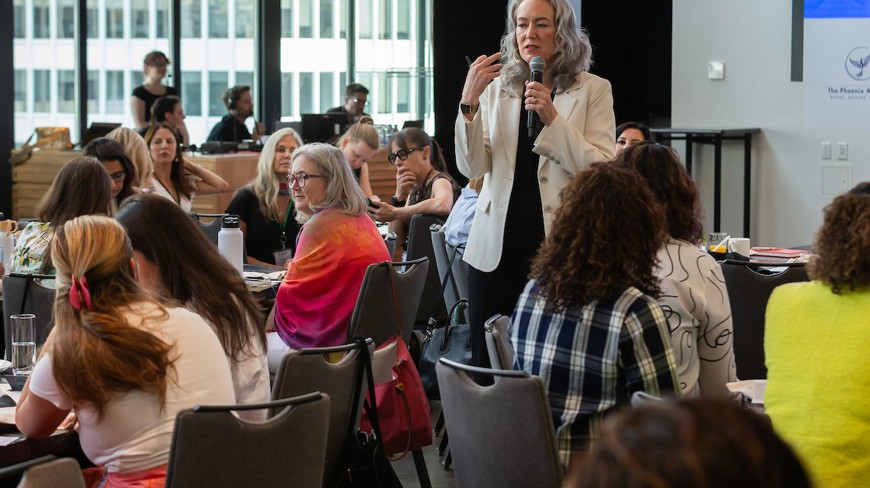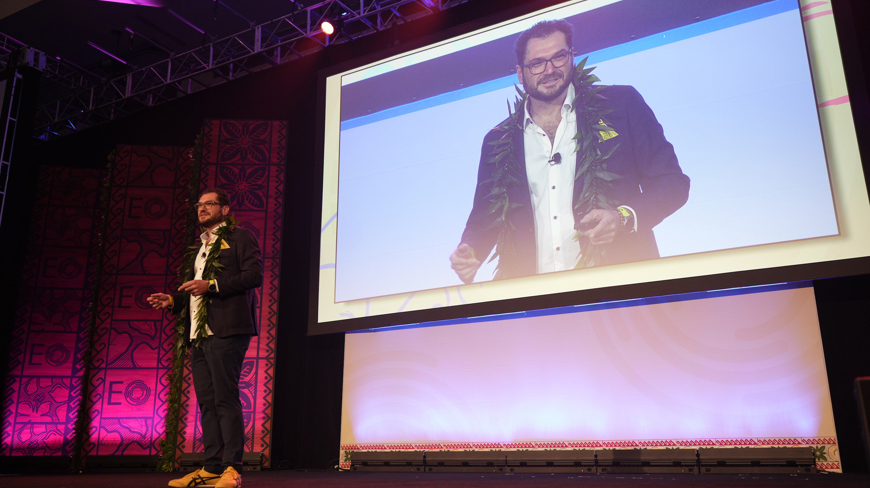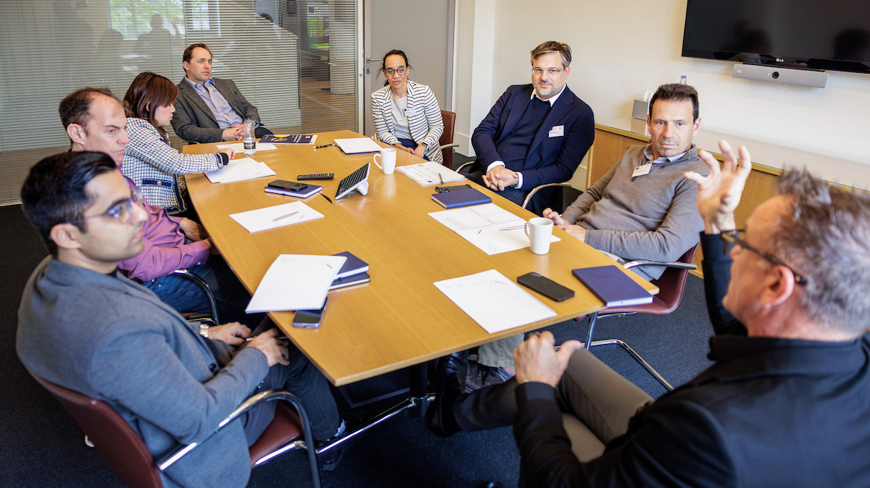
How Entrepreneurs Can Turn Obstacles into Springboards
September 22, 2025
Andrew Blickstein (EO Utah) reflects on how he transformed life’s challenges into enduring lessons pertinent to any entrepreneur.

On his Lumen Podcast, EO Global Board Chair Joaquin “Quini” Cordero recently spent time with fellow Entrepreneurs’ Organization member Andrew Blickstein to discuss how entrepreneurs’ journeys rarely resemble a straight line.
Andrew’s story spans an early career in advertising and media buying, the founding and eventual sale of his own agency, and his subsequent pivot to business coaching and culture building. Along the way, the EO Utah member faced cancer, career reinvention, and the struggles inherent in scaling a business.
Through it all, the art school graduate has developed a set of hard-won lessons. Andrew said he would tell his younger self: “Keep tacking your work to the wall every week and getting feedback. Never lose that muscle. Never get afraid.”
Here are a few key takeaways Andrew shared with Quini as he reflected upon his journey:
1. Turn Adversity into Opportunity
Not long after being laid off from his role as a media director for EMI Music when his department was spun off, Andrew found himself facing three massive life changes at once: the layoff, a pregnant wife, and a melanoma diagnosis.
“Cancer, a pregnant wife, and laid off,” he says. “So, what do you do?”

“People think, ‘I need a strategy for my business. Not many people say, ‘Well, what is the strategy for my life?'"
- Andrew Blickstein (EO Utah)
Instead of seeking something seemingly safer or more stable, he started his own agency. That leap turned into a 17-year run building a successful media agency with major clients. The lesson: setbacks and uncertainty can be the very fuel that drives entrepreneurial action if you are willing to reframe them as opportunities rather than intractable obstacles.
2. Your Talents Only Get You So Far
Andrew admits one of his toughest early lessons was realizing that being a great media buyer did not equate to being a great business owner.
“A lot of people start businesses because they think they can do the job better than their previous boss,” he says. “There is this absence of understanding of cash flow or managing people or contracting or legal. For me, the hardest part was understanding my responsibilities as an owner.”
When pivoting from another career, entrepreneurs should understand that their skills and talents alone will not make a business viable. Instead, embrace the broader responsibilities of ownership and find where you need to broaden your skills and knowledge base.

Andrew Blickstein (EO Utah)
3. Rely On Systems Instead of Yourself
As his agency scaled, Andrew became an early adopter of the Entrepreneurial Operating System (EOS). For him, the program’s power came from its structured, one-page strategic plan that aligned his team and created clarity.
“It is so easy as a business owner to want to solve everything yourself, and it is so difficult to scale that way,” he says. “How many times do we say, let me just do it? So, I loved that one-page plan because it had values. It had long-term goals and short-term goals. It created a whole set of boundaries. When someone would come to me with an idea, it was really easy for me to hold up the one-page plan and say, ‘Show me where this idea lives on here. Does it support a core value? Is it driving a 90-day goal? Is it driving an annual goal?’”
4. Lifelong Learning is Key
After selling his agency, Andrew turned to coaching. Working with companies ranging from million-dollar marketing firms to billion-dollar manufacturing behemoths gave him new insights into different leadership styles, ownership models, and industries. For entrepreneurs, remaining curious and open to new perspectives is critical for staying relevant and adaptable.
“The beauty of coaching is I am not responsible for solving any of a business’s problems,” he says. “I am responsible for helping the client figure out a solution.”
5. Leverage Your Business to Live the Life You Want
Entrepreneurs often obsess over company goals but neglect their personal ones. After 30 years working in Chicago, Andrew moved to Utah. He finds skiing to be a true release, where he can be mindful and present in the moment rather than having his thoughts constantly churning over the next problem.
After the move, he now squeezes in roughly 80 days on the slopes every year around a still busy work schedule. His decision to relocate was an intentional and efficient way of introducing more peace and joy into his life.
“People think, ‘I need a strategy for my business’” he says. “Not many people say, ‘Well, what is the strategy for my life?’ If you think about how do I make my product, my business, my service, easier for people to use? We use the term friction. Well, if I love to ski, how do I reduce friction?”
Interested in becoming an EO member like Andrew? Learn more here.
 More EO Member Insights
More EO Member Insights

How Anxiety Signals that Your Purpose is Misaligned
Learn to recognize the distinction between fear and anxiety as your internal compass for making bold, strategic moves on your entrepreneurial path. By embracing integration, applying crisis-driven insights, and redefining success on your own terms, you can find alignment and impact.

Lessons for Entrepreneurs Amid Personal Challenges
A climbing accident, surgeries, and battling a frightening infection taught EO Global Board Chair Joaquin “Quini” Cordero about the power of letting go, leaning on community, and seeing the big picture.

Navigate the Social Dynamics of High-Stakes Business Meetings
High-stakes business meetings are shaped as much by unspoken dynamics as by formal agendas. To make a lasting impact, learn to read the room, manage perceptions, and speak with clarity and intention.
